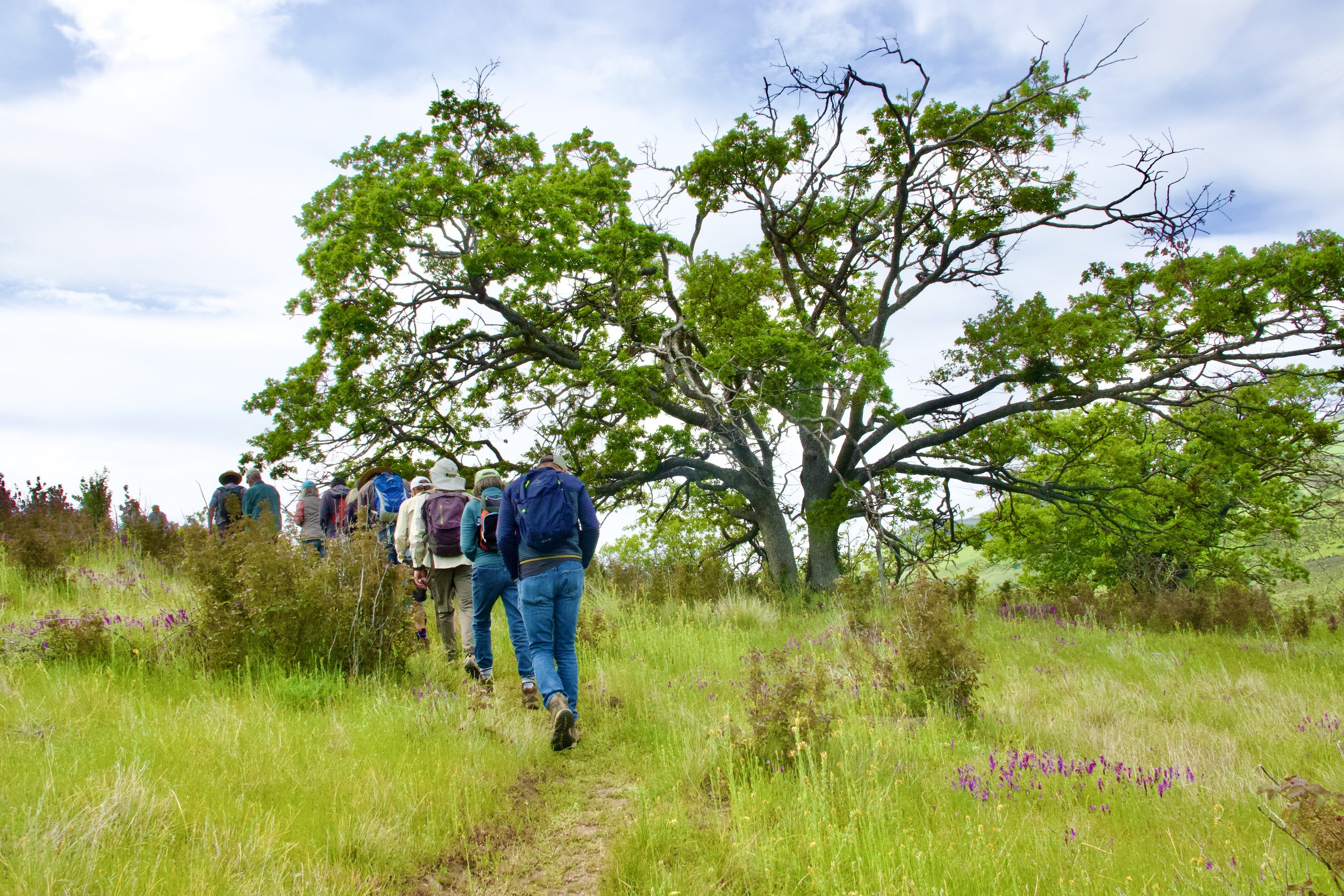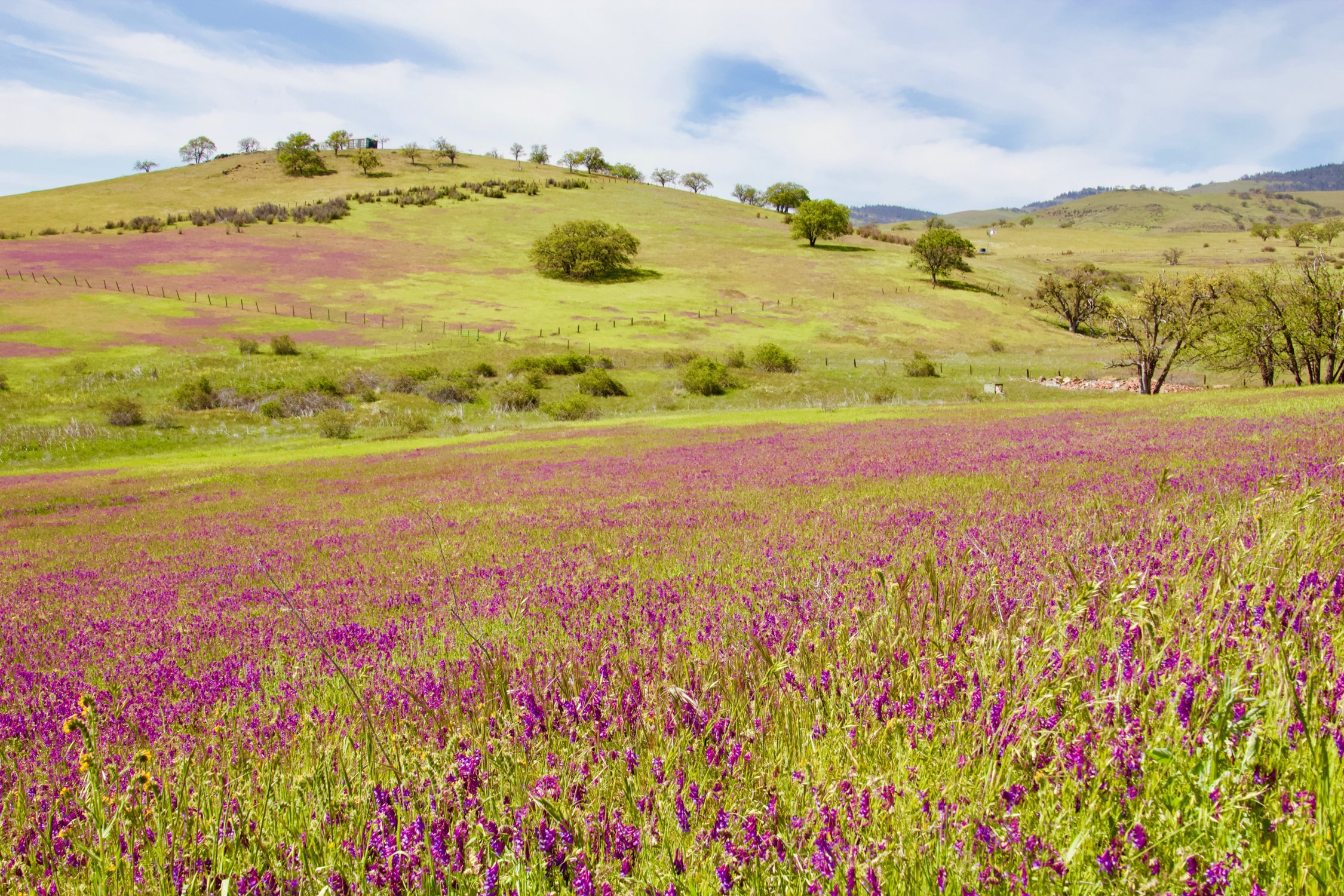Oak Mistletoe photo by Frank Lospalluto.
During the holidays you may be hanging mistletoe in doorways in anticipation of a kiss. Or perhaps on a winter drive looking out the window you notice leafless oak trees full of green mistletoe balls and wonder if the mistletoe is harming the trees. So, is mistletoe a kiss or a curse?
Mistletoe is a hemiparasite or partial parasite: a green plant that makes food from sunlight that also steals water and nutrients from tree cambium through root-like structures called haustoria. Another local hemiparasite you may be familiar with is Indian paintbrush. There are many species of mistletoe, but the oak mistletoe commonly growing in western white oak trees is known as Phoradendron—meaning tree thief.
Townsend's Solitaire photo by Frank Lospalluto.
Oak mistletoe (Phoradendron villosum) is actually a native plant, which has co-evolved with other animals and plants in oak woodlands. The ripe mistletoe fruit provides critical winter food for birds like American Robin, Cedar Waxwing, Townsend’s Solitaire, and the declining Western Bluebird. After eating the fruit the undigested material is excreted by birds as a sticky dropping which glops onto branches for future germination. Dwarf mistletoe, which grows in needle-leaf trees, is also important for wildlife, supplying shelter and nesting sites for threatened animals such as Spotted Owls, Pine Martins and Goshawks. If your objective is to grow tall straight trees for harvest or if you manage an orchard, mistletoe species can be a management challenge. Some oak trees that are infected with mistletoe may have branches that break earlier than if the branch was uninfected, but there is not much evidence that mistletoe will significantly harm healthy oak trees. In fact, removing mistletoe by pruning too many branches or cutting out clumps can potentially hurt trees.
Oak mistletoe berries photo courtesy of CalPhotos.
The Druids admired mistletoe because it rooted close to heaven. Fridda, the Norse Goddess of Love, was said to give kisses to people under mistletoe to celebrate her revived son who was slain by a European mistletoe arrow. Mistletoe is a symbol of renewal and peace in many cultures and provides food and habitat for our animal neighbors. So kiss away, but please keep in mind the true curse: mistletoe berries are poisonous to humans.










